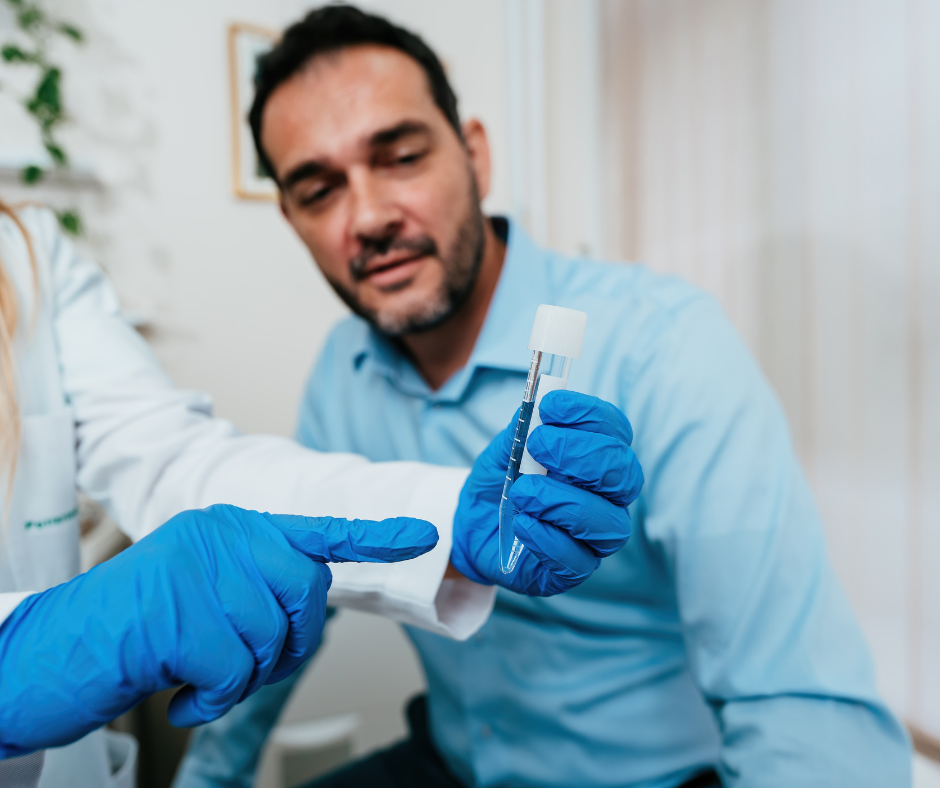The Journey of Egg Donors

As an egg donor, I have embarked on a remarkable journey that has not only enriched my life but also touched the lives of countless individuals yearning to create their own families. The decision to become an egg donor is a profound act of generosity, one that transcends mere altruism and delves into the realm of empowerment. In this article, I will unveil the multifaceted experience of being an egg donor, shedding light on the process, the emotional and physical aspects, and the profound impact it has on both donors and recipients.
The empowering experience of being an egg donor
Becoming an egg donor is a transformative experience that instills a profound sense of empowerment. By choosing to share the gift of life, I have discovered a newfound appreciation for the incredible capabilities of the female body and the profound impact my contribution can have on others. The knowledge that my eggs have the potential to create life and fulfill the dreams of aspiring parents is a humbling and empowering realization.
Moreover, the egg donation process has taught me invaluable lessons about self-advocacy, informed decision-making, and taking control of my reproductive choices. Throughout the journey, I have been encouraged to ask questions, voice concerns, and actively participate in every step, ensuring that my well-being and autonomy remain at the forefront. This experience has empowered me to embrace my bodily autonomy and make informed decisions that align with my values and beliefs.
The process of becoming an egg donor
The journey of becoming an egg donor is a multifaceted process that requires dedication, patience, and a deep understanding of the commitment involved. It begins with an initial screening process, where potential donors undergo thorough medical and psychological evaluations to ensure their eligibility and readiness for the procedure.
- Initial Screening:
- Medical history review
- Psychological evaluation
- Genetic testing
- Infectious disease screening
- Counseling and Education:
- Understanding the legal and ethical implications
- Learning about the medical procedures involved
- Discussing potential risks and side effects
- Synchronization and Stimulation:
- Hormonal medications to stimulate egg production
- Monitoring through ultrasounds and blood tests
- Egg Retrieval Procedure:
- Performed under sedation or general anesthesia
- Eggs are retrieved via a minor surgical procedure
Throughout this process, open communication with the medical team and adherence to the prescribed protocols are crucial for a successful outcome.
Requirements for becoming an egg donor
To embark on the journey of egg donation, aspiring donors must meet specific requirements to ensure their safety and the well-being of the intended parents and future offspring. These requirements are designed to safeguard the interests of all parties involved and provide a framework for a successful and ethical egg donation process.
- Age Criteria:
- Most egg donor programs accept donors between the ages of 21 and 32, as this range is considered optimal for egg quality and fertility potential.
- Medical History and Screening:
- A comprehensive medical evaluation is conducted to assess the donor's overall health, reproductive history, and potential genetic risks.
- Screening tests for infectious diseases, such as HIV, hepatitis, and sexually transmitted infections, are mandatory.
- Lifestyle and Behavioral Factors:
- Donors must maintain a healthy lifestyle, free from substance abuse, smoking, and excessive alcohol consumption.
- A stable emotional and psychological state is essential to ensure the donor's well-being throughout the process.
- Educational and Family Background:
- Many programs consider the donor's educational background, as it may be a factor in the selection process for intended parents.
- Information about the donor's family medical history is also collected to assess potential genetic risks.
- Legal and Ethical Considerations:
- Donors must undergo counseling to understand the legal and ethical implications of their decision, including the potential for future contact with any resulting children.
It is crucial for aspiring egg donors to thoroughly research and understand the requirements set forth by reputable egg donor programs to ensure a safe and successful experience.
The emotional and physical journey of egg donors
The egg donation process is not merely a physical endeavor; it is a profound emotional journey that requires resilience, self-awareness, and a deep commitment to the well-being of both the donor and the intended recipient(s).
Emotional Aspects:
- Motivation and Altruism:
- Many donors are driven by a genuine desire to help others create families, stemming from a place of empathy and compassion.
- The knowledge that their contribution can bring immense joy and fulfillment to aspiring parents can be emotionally rewarding.
- Psychological Preparedness:
- Donors undergo psychological evaluations to ensure they are emotionally prepared for the process and potential implications.
- Support systems, such as counseling and peer support groups, can help navigate the emotional complexities involved.
- Sense of Purpose and Empowerment:
- The act of egg donation can instill a profound sense of purpose and empowerment, as donors play a vital role in creating life and helping others achieve their dreams of parenthood.
Physical Aspects:
- Hormonal Stimulation:
- Donors undergo a cycle of hormonal medications to stimulate egg production, which can cause side effects such as bloating, mood swings, and headaches.
- Close monitoring by medical professionals is essential to ensure the donor's well-being.
- Egg Retrieval Procedure:
- The egg retrieval process is a minor surgical procedure performed under sedation or general anesthesia.
- Recovery time varies, but donors are typically advised to rest for a few days after the procedure.
- Potential Risks and Complications:
- While rare, there are potential risks associated with egg donation, such as ovarian hyperstimulation syndrome (OHSS) or complications from the retrieval procedure.
- Donors are thoroughly informed about these risks and closely monitored throughout the process.
Throughout this emotional and physical journey, open communication with the medical team, adherence to protocols, and a strong support system are vital for ensuring the well-being of the donor and the successful outcome of the process.
The impact of egg donation on recipients
The profound impact of egg donation extends far beyond the physical act of donating eggs; it touches the lives of intended parents and their families in ways that are deeply profound and life-altering.
- Fulfilling Dreams of Parenthood:
- For many individuals and couples struggling with infertility, egg donation offers a path to parenthood that would otherwise be unattainable.
- The gift of life that egg donors provide is invaluable, as it enables the creation of families and the realization of long-held dreams.
- Emotional and Psychological Impact:
- The journey to parenthood through egg donation can be emotionally intense, filled with anticipation, hope, and sometimes, heartbreak.
- The successful outcome of an egg donation cycle can bring immense joy, relief, and a sense of completeness to intended parents.
- Genetic Connections and Family Building:
- Egg donation allows intended parents to have a genetic connection with their child, a bond that can be deeply meaningful and cherished.
- The creation of families through egg donation contributes to the richness and diversity of the human experience.
- Societal Impact and Changing Perspectives:
- As egg donation becomes more widely accepted and understood, it challenges traditional notions of family and parenthood, fostering a more inclusive and compassionate society.
The impact of egg donation extends beyond the immediate recipients, as it contributes to the creation of new life, the formation of families, and the perpetuation of hope and love in the world.
Support and resources for egg donors
Embarking on the journey of egg donation is a significant undertaking, and it is essential for donors to have access to comprehensive support and resources throughout the process. Reputable egg donor programs and organizations understand the importance of providing a robust support system to ensure the well-being and empowerment of egg donors.
- Counseling and Emotional Support:
- Professional counseling services are offered to help donors navigate the emotional complexities of the process, address any concerns or anxieties, and provide guidance on coping strategies.
- Support groups and peer networks can offer a sense of community and shared experiences, allowing donors to connect with others who have undergone similar journeys.
- Medical Care and Monitoring:
- Experienced medical professionals, including fertility specialists, nurses, and psychologists, closely monitor donors throughout the entire process, ensuring their physical and emotional well-being.
- Regular check-ups, ultrasounds, and blood tests are conducted to monitor the donor's response to hormonal stimulation and assess any potential risks or complications.
- Legal and Financial Assistance:
- Reputable egg donor programs provide legal guidance and support to ensure that donors understand their rights, responsibilities, and the legal implications of their decision.
- Egg donor compensation, which can vary depending on the program and location, is provided to acknowledge the time, effort, and commitment involved in the process.
- Educational Resources and Information:
- Comprehensive educational materials, including informational brochures, online resources, and seminars, are available to help donors understand the process, potential risks, and what to expect throughout their journey.
By providing a robust support system and access to essential resources, egg donor programs empower donors to make informed decisions and navigate their journey with confidence, compassion, and a sense of empowerment.
Myths and misconceptions about egg donation
Despite the increasing awareness and acceptance of egg donation, several myths and misconceptions persist, often fueled by misinformation or outdated beliefs. As an egg donor, it is crucial to separate fact from fiction and approach the process with a well-informed and open mindset.
- Myth: Egg donation is a physically and emotionally taxing process.
- Reality: While the egg donation process involves hormonal stimulation and a minor surgical procedure, reputable programs prioritize the donor's well-being and take measures to minimize potential risks and discomfort. With proper medical supervision and support, the process can be manageable for most donors.
- Myth: Egg donors have no control over the process or their personal information.
- Reality: Reputable egg donor programs respect the donor's autonomy and privacy. Donors have the right to make informed decisions throughout the process and can choose the level of anonymity or openness they prefer regarding their personal information.
- Myth: Egg donation can lead to long-term health issues or infertility.
- Reality: Extensive research and data have shown that egg donation, when performed by experienced medical professionals following proper protocols, does not increase the risk of long-term health issues or infertility for the donor.
- Myth: Egg donors have no legal rights or responsibilities regarding any resulting children.
- Reality: In most cases, egg donors have no legal rights or responsibilities regarding any children born from their donated eggs. However, it is crucial for donors to understand the legal implications and potential for future contact, as regulations and laws may vary across different jurisdictions.
By addressing these myths and misconceptions, egg donors can approach the process with a well-informed and empowered mindset, free from unnecessary concerns or doubts.
The lasting impact of egg donation
As I reflect on my journey as an egg donor, I am filled with a profound sense of gratitude and empowerment. The experience has not only enriched my life but has also contributed to the creation of new families and the perpetuation of hope and love in the world.
The lasting impact of egg donation extends far beyond the physical act of donating eggs. It is a testament to the resilience and strength of the human spirit, a reminder that even in the face of adversity, there are individuals who selflessly step forward to help others achieve their dreams.
Through this experience, I have gained a deeper appreciation for the incredible power of the female body and the profound impact our choices can have on the lives of others. I have witnessed firsthand the transformative power of hope, as intended parents embark on their own journeys toward parenthood, fueled by the gift of life that egg donors provide.
Moreover, the egg donation process has empowered me to embrace my bodily autonomy, make informed decisions, and advocate for my well-being throughout every step. It has taught me invaluable lessons about self-care, resilience, and the importance of having a strong support system.
As I look ahead, I am filled with a renewed sense of purpose and a desire to continue advocating for the empowerment of egg donors and the destigmatization of infertility. I hope that by sharing my experience, I can inspire others to approach the journey of egg donation with an open mind, a compassionate heart, and a deep understanding of the profound impact it can have on the lives of so many.
In the end, the journey of egg donation is not merely about the physical act of donating eggs; it is about the power of human connection, the strength of hope, and the enduring impact of empowering choices that transcend boundaries and create lasting legacies.











